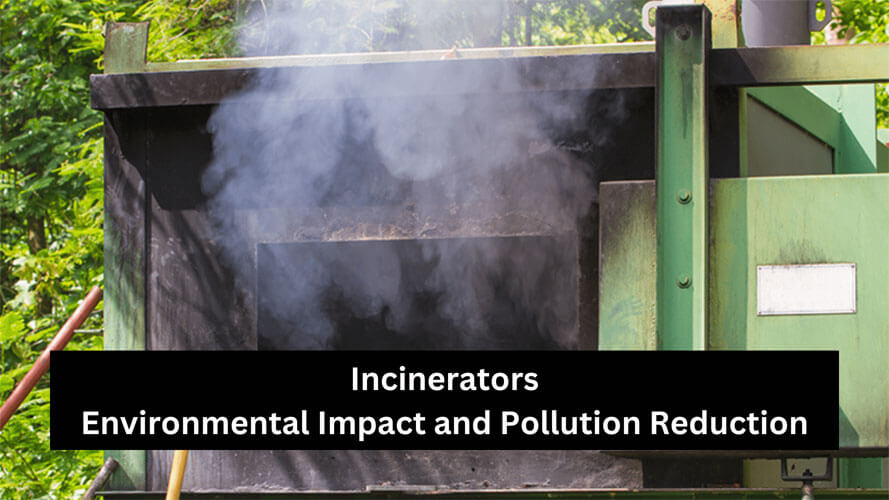Incinerators have long been a topic of debate regarding their impact on the environment. Some argue that they are detrimental, while others highlight their potential to reduce pollution. In this blog post, we’ll delve into both perspectives, exploring whether incinerators are indeed bad for the environment and how they can contribute to pollution reduction.
Are Incinerators Bad for the Environment?
Incinerators are often criticized for their potential to release harmful pollutants into the air. The combustion process in incinerators can emit various pollutants such as particulate matter, nitrogen oxides, sulfur dioxide, and volatile organic compounds. These pollutants can have adverse effects on air quality and human health, leading to respiratory issues and other health concerns.
However, advancements in incinerator technology have led to the development of more efficient and environmentally friendly incineration processes. Modern incinerators are equipped with sophisticated emission control systems that help reduce the release of harmful pollutants into the atmosphere. These systems use filters, scrubbers, and catalytic converters to capture and neutralize pollutants before they are discharged.
Additionally, incinerators can be designed to generate energy from waste. This process, known as waste-to-energy (WtE) or energy recovery, involves burning waste materials to produce heat, which is then used to generate electricity or heat buildings. By harnessing energy from waste, incinerators can contribute to reducing reliance on fossil fuels and lowering greenhouse gas emissions.
How Can an Incinerator Help Reduce Pollution?
One of the key benefits of incinerators is their potential to reduce pollution through proper waste management. When waste is incinerated at high temperatures, it is converted into inert ash and gases. The ash can be safely disposed of in landfills or used in construction materials, while the gases can be treated to remove pollutants before being released into the atmosphere.
Furthermore, incinerators can help divert waste from landfills, which can significantly reduce methane emissions. Landfills are a major source of methane, a potent greenhouse gas that contributes to climate change. By incinerating waste instead of burying it, incinerators can mitigate methane emissions and help combat global warming.
It’s important to note that while incinerators offer potential benefits in terms of pollution reduction and energy recovery, proper regulation and monitoring are crucial to ensure their environmental impact is minimized. Strict emission standards, regular inspections, and community engagement are essential aspects of responsible incinerator operation.
In conclusion, the environmental impact of incinerators depends on various factors, including technology, waste management practices, and regulatory oversight. While they have the potential to reduce pollution and generate energy from waste, careful consideration and continuous improvement are necessary to mitigate any negative consequences on the environment and public health.
People Usually Search Keywords:
Garbage Incinerator for Sale | Animal Body Incinerator Machine | Animal Carcass Incinerator | Medical Incinerator Manufacturers | Medical Waste Autoclave with Shredder | Medical Waste Incinerator Manufacturer | Compost Machine for Sale | Commercial Composting Machine | Industrial Compost Machine | Compost Machine Industrial | Livestock Incinerators | Commercial Composting Machines | Trash Incinerator for Sale | Hospital Incinerator | Animal Incinerator for Sale | Animal Incinerator | Commercial Compost Machine | Industrial Composting Machine | Industrial Incinerator for Sale | Autoclave Shredder | Animal Incinerators | Incinerators for Sale | Pet Incinerator for Sale | Pet Incinerator | Medical Waste Incinerator | Poultry Incinerators | Livestock Incinerator | Best Compost Machines | Medical Incinerators | Best Composter Machine | Waste Incinerator for Sale | Incinerator for Sale | Best Compost Machine | Poultry Incinerator | Composter Machine


